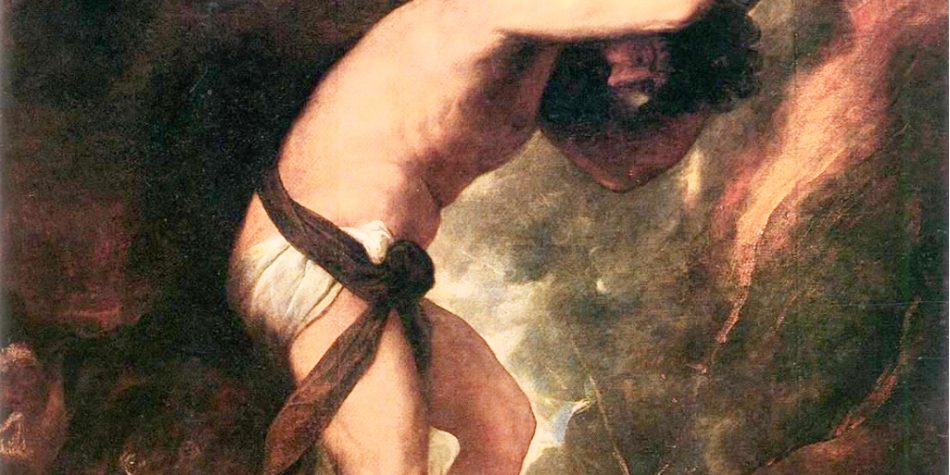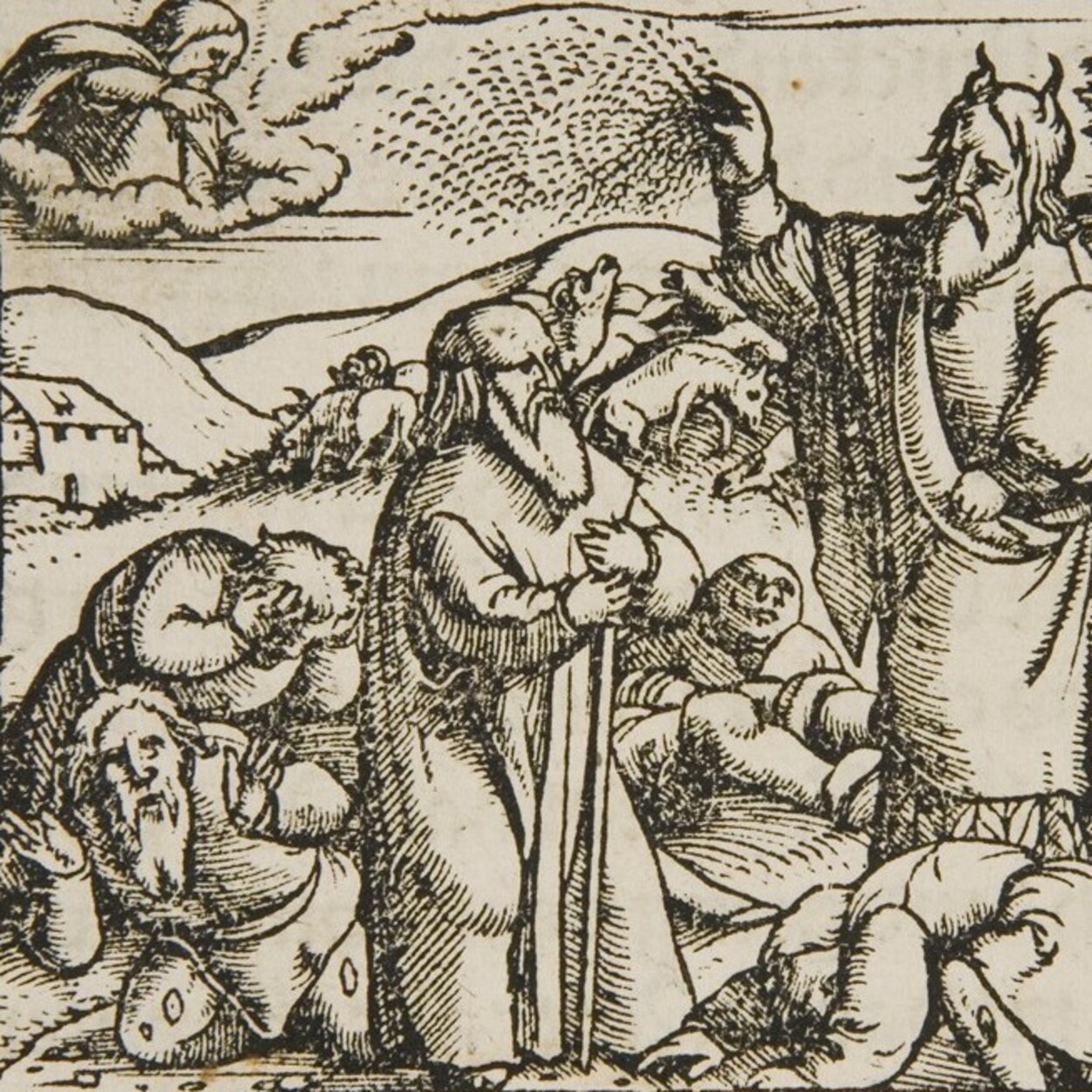Religious caricatures have a long and infamous history. At different times and periods throughout history, they have been bandied about as a way to perpetuate and reinforce a particular view of (especially) minority religious groups. From hooked-nose Jews to terrorist Muslims, the history of such imagery is sadly extensive.
While some religious caricatures are overt, such as cartoons exaggerating stereotypic characteristics, the most effective caricatures make their way into public discourse unnoticed, almost invisibly—in a way that gets taken up as “reality” by normal folks without the extra energy to think critically about what they’re hearing and reading.
One such caricature made a prominent appearance just this week, in a commentator’s widely read column on Latter-day Saints. In the lead up to our faith’s general conference proceedings, Jana Riess took the opportunity to alert her readership that President Russell Nelson’s last conference pronouncement had missed the mark, by advancing a translation of “Israel” that, in her judgment, “ignores the original story” in the Biblical text about Israel. She was kind enough to point out something better he might have said instead.
According to Riess, Israel’s “original story” hearkens back not to sure promises made to Jacob’s parents and grandparents by God, and not to what took place in pre-mortality. It’s Jacob’s night-long wrestle with the angel that is the critical story. Wrestling can be an inescapable part of all of our relationship and reconciliation with God.
It’s clearly true this experience preceded Jacob’s blessing and name change to Israel. And of course, it’s true some Enos-like grappling and wrestling can be an inescapable part of all of our relationship and reconciliation with God. As Daniel Ortner acknowledged, “wrestling with God is a part of the Jewish tradition and I think that we can learn something valuable from it just as we can learn from Abraham’s bargaining with God over the destruction of Sodom.”
Rather than propose this as a helpful elaboration on President Nelson’s teaching, however, Riess made a point to frame this insight as somehow in opposition to the prophet’s overarching message, suggesting: “In the Genesis story, it’s not that Jacob lets God prevail, submitting demurely to God’s will. He fights God tooth and nail in the dark night of the soul, refusing to let go until he receives a blessing.”
Referencing this commentary from Riess, Ortner added, “It’s interesting how much framing matters. I feel like this exact same article could have been reframed as a useful complement or a further insight rather than as a contradiction to President Nelson.”
Riess goes on to argue that “the overall idea of translating ‘Israel’ as ‘let God prevail’” unfortunately overlooks the “original story, in which Jacob actively refuses to let God prevail.”
Then comes the caricature. As she puts it, the word “Israel” is not about “perfect submission and simply letting God prevail” which she equates with the derisive motto, “obey first, ask questions later or not at all.”
In contrast to this portrayal of mindless believers, Riess insists that true Israel is about “being people who are willing to wrestle.” From this view, the key distinction is not between those willing to let God prevail (or not), it’s between those who are “willing to wrestle” and those who sideline questions in an eagerness for “perfect submission.” Whereas the latter group attempts to shove struggle away in an attempt to zealously conform to the dictates of prophetic teachings, the former group is refreshingly “willing” to think and question.
Can you see the caricatures here? When my wife Monique read Jana’s article, she remarked, “I’d like to meet that active member who has never struggled or grappled. Who is she?”
Then, she added, “Everyone I know trying to follow Jesus—all of them—struggle as part of the process of letting God prevail … isn’t that an inherent part of the experience for all of us?”
Rather than acknowledging this simpler reality—that struggle is part of the human experience, and central to our process of reconciliation with God—this argument insists upon the existence of a special group of people walking a higher path manifesting a laudable willingness to question and grapple over fundamentals.
If there is, in fact, a distinctive of group of people with a unique burden of struggle, there are lots of reasons to believe it’s those sincerely trying to follow Christ who deserve the descriptor, especially within a society not only leaving behind His teachings, but increasingly turning its ire and rage on those who take them seriously. Within that society, those embracing popular socio-political dogmas arguably have, in some ways, a much “easier” path with less internal wrestling to deal with. By comparison, the grappling I have witnessed among men and women, for instance, attempting to reach longer-term freedom from pornography—or married couples doing their darndest to endure to live another day committed to each other—is intense, and intensely inspiring.
It’s true there’s another kind of grappling and struggle unique to those who have rejected Christ and faith in general. Isaiah compares these people to a “troubled” or “tossing” or “restless” sea, “which is never still but continually churns up mud and dirt.”
And in fairness, I believe that commentaries like this—and there are many—have a noble intention of trying to ensure that those who feel on the fringes, for whatever reason, feel more supported and encouraged. That should be a priority for all of us. Yet rather than helping to integrate these people into the body of Christ, I worry that these well-intentioned attempts do the reverse, carving out distinctive “cells” of estranged people, and giving them reason after reason to keep feeling that way, and, indeed, to feel justified, and even special for remaining at a distance from the main body of Saints.
This particular commentator seems to have an enduring, unbounded interest in highlighting progressive Latter-day Saints as not only the future of the Church, but also, on a continually higher plane than other believers—distinct and special in a way that even a deeper reading of scripture reaffirms. As Dan Ellsworth cautions though, “The only successful outcome or ‘prevailing’ in a wrestle with God is when our hearts are transformed to reflect God’s heart. This process of struggle is called ‘conversion,’ and without real conversion, we will use the Jacob story and other scripture as just another exercise in validating our worldview.” Rather than glorifying struggle and doubt, the Biblical narrative calls on us to move gradually toward surrender.
That worldview is one that justifies those holding on to rival commitments, and refusing to surrender and yield to even inspired teaching. Rather than encouraging people in a place like this towards the faith-and-repentance process President Nelson implores (or perhaps expanding upon his repeated invitations), I’m among those concerned at the extent to which this kind of commentary encourages those harboring ongoing resistance to prophetic counsel to stay where they are … ‘yes, thanks for the reminder that I’m exactly where God wants me to be! I really needed that after hearing about President Nelson’s message!’
Rather than closer to yielding, they end up farther away. Rather than closing the gap in intimacy with the Saints, they come away feeling extra special, justified, and, indeed, on the Biblical high ground.
But, of course, this isn’t true. Rather than glorifying struggle and doubt, the Biblical narrative calls on us to move gradually toward surrender. And despite Jacob’s initial struggle against Him, God prevails in the end. That’s really the point. The Biblical prophets emphasize this outcome of wrestling in Jeremiah’s language of having God’s law written upon our hearts and Ezekiel’s description of removing our stony hearts and replacing them with hearts of flesh. In order to be God’s people, Israel is intended to reflect God’s heart—not their own—to the rest of humanity, and that is how the seed of Abraham will bless all the nations of the earth, as God told Abraham, “because thou hast obeyed my voice.”
As C. S. Lewis famously said, “There are only two kinds of people in the end: those who say to God, ‘Thy will be done,’ and those to whom God says, in the end, ‘Thy will be done.’” Jacob’s life, and that of his father and his grandfather before him, reflect the former outcome: an ultimate commitment to surrender to God’s will.
Yet even this kind of surrender becomes a victory for us, as Elder Neal A. Maxwell once highlighted, “Consecration thus constitutes the only unconditional surrender which is also a total victory!”
In sum, it seems clear that the point of Biblical stories is not to glorify perpetual doubt and struggle against God. Indeed, the main character of the entire scriptural canon made headlines not by exulting in the value of questioning, but instead by enjoining followers to “doubt not” and “be believing.”
We can accept that, and follow as best we can what Jesus Himself and those called to share His message share today. Or we can reject sacred teaching, and instead distort scripture to justify our own feelings—creating a cartoon, funhouse mirror image of those attempting to follow the prophet as somehow unreal, and even silly along the way.
Take your pick.

















